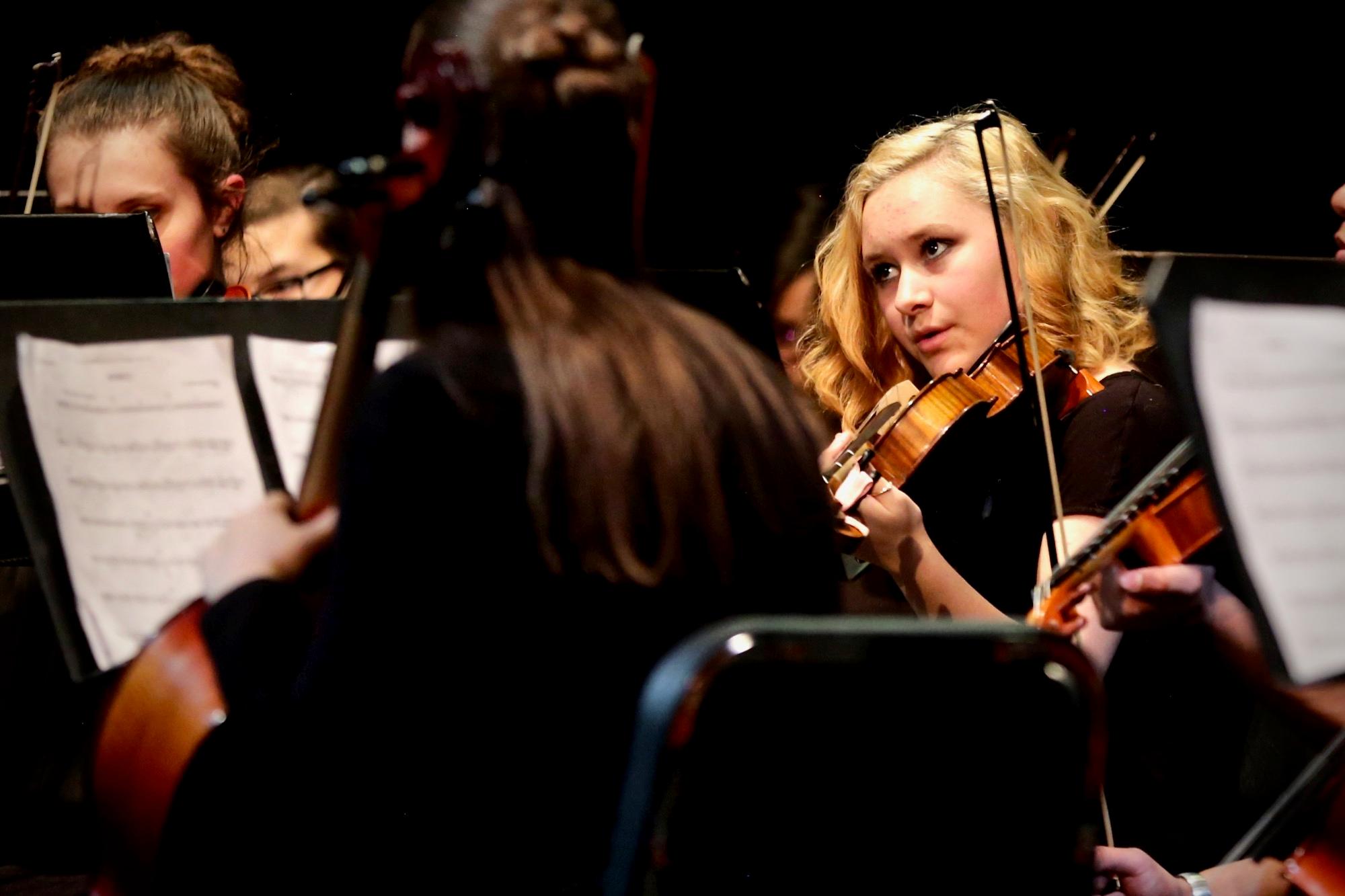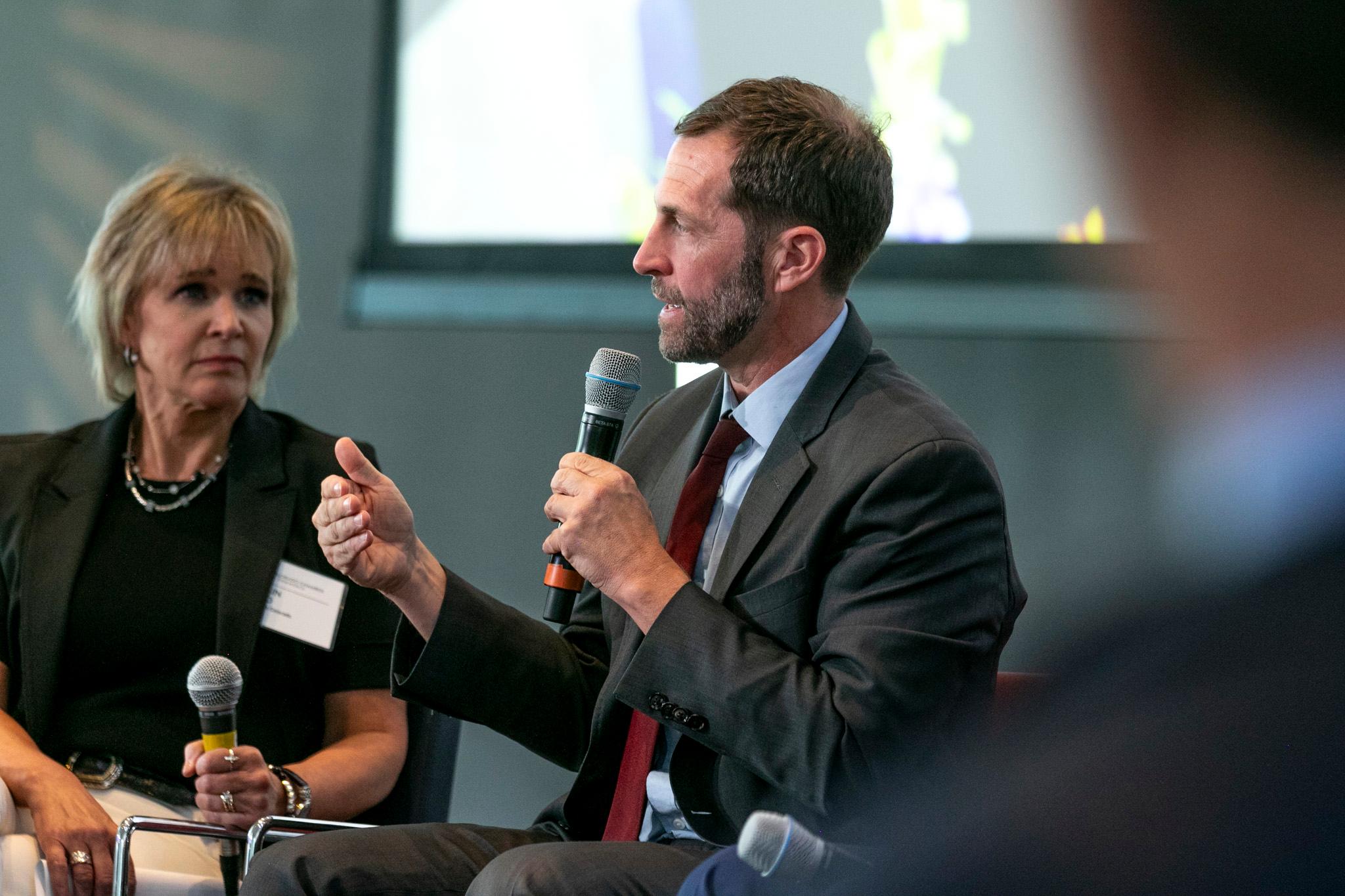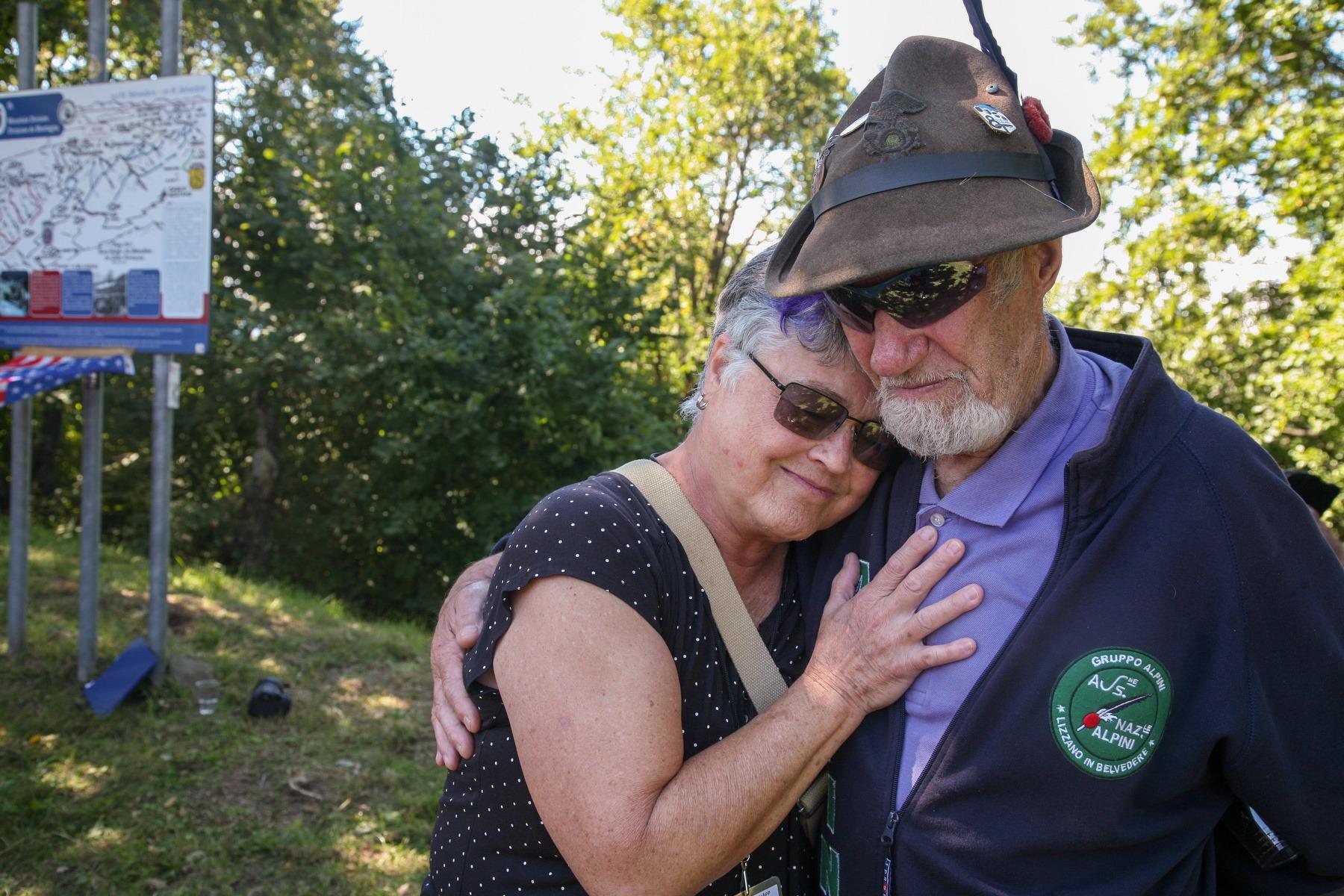
A year after the Columbine shooting, composer Frank Ticheli stepped on stage at Macky Auditorium in Boulder to conduct the piece he had written to help comfort a grieving community. He titled the piece “An American Elegy.”
“I thought ‘How am I going to express this?’ It was the kids’ idea — they said ‘We don’t want to relive the tragedy.’ I thought that was perfect for me because I didn’t want to do that either. I didn’t want to write a piece that re-lives this tragedy. Let me write a piece that’s just about hope.”
Even still, it was a tall order. Ticheli needed to write a piece that expressed the emotional depth of the Columbine experience but at the level of advanced high school performers.
The music is full of symbolism. It starts off “at the bottom and gradually lifts itself upward,” Ticheli said. “I imagine a head being gradually lifted skyward.”
Ticheli uses a lot of horns in the piece because “the sound envelops the room. And I wanted the sound the embrace the room — embrace the players, embrace the audience, embrace everyone in the environment.”
The emotional centerpiece of “An American Elegy” comes in the middle of the piece when a trumpeter plays offstage. The distant trumpet represents a celestial voice. Ticheli said “it could be religious, it could the spirit of someone who was a victim of the shooting tragedy, it could be anyone. But my point is that it’s a voice that’s not here.”
“An American Elegy” premiered at a packed Macky Auditorium a year and three days after the tragedy. It was a joint concert with the University of Colorado Wind Ensemble, but for “An American Elegy” the university players left the stage and the piece was played just by the Columbine High School Wind Ensemble.
“In a dramatic way you saw how young these kids are," Ticheli remembered. "Everything was just smaller. The size of the ensemble. The age of the kids. And you felt a kind of vulnerability of kids at that age."
The day after the shooting, the musical community jumped to action.
Specifically, the CU Boulder musical community. Students there convened with the CU director of bands to commission a piece of music for the Columbine High School Band. Students even led the fundraising efforts to raise the money for the commission. Within two weeks, the project was fully funded.
The choice of composers was obvious. The students had been working on a piece by composer Frank Ticheli for the Spring concerts. Brent Biskup was a CU Boulder undergrad and Columbine band assistant and said that because “the kids were working on ‘Shenandoah,’ they wanted Frank.”
Ticheli was less sure, at first. “I thought, ‘Who am I to even pretend the kind of pain this community is going through?’”
“An American Elegy” has flourished in band rooms across the country.
Manhattan Music, the publisher of the score, estimates that it’s been performed over 10,000 times in the past 20 years.
Brent Biskup was a band assistant at Columbine in 1999 and is now a band director at a high school in Texas. “It’s a piece the music world tries to program because it brings up discussion and thought process about school shootings.”
Ticheli remembers talking with the conductor of a performance at Carnegie Hall in February of last year.
“He said to me, ‘I’m performing your ‘Elegy’ at Carnegie Hall in memory of the victims of the latest school shooting.’ And I said “Which one?’ He said, “The one that will happen between now and the Carnegie Hall concert.”
Two days later, 17 students and staff members were killed at Stoneman Douglas High School in Parkland, Florida.
Biskup was the off-stage trumpeter the night of the premier 19 years ago and looking back, he thinks the piece achieved far more than the CU Boulder band students and their professor could have imagined when organized the commission.
“There were some positives that came out of such a terrible tragedy and this is one of them. A great piece of music and a sense of hope which was really important especially for those kids at the time.”
SPECIAL BROADCAST: CPR Classical brings you the little known stories of the role music played in the aftermath of the Columbine tragedy Monday, April 15 at 8 p.m., Thursday, April 18 at 2 p.m., Saturday, April 20 at 10 a.m., and Sunday, April 21 at 5 p.m.









